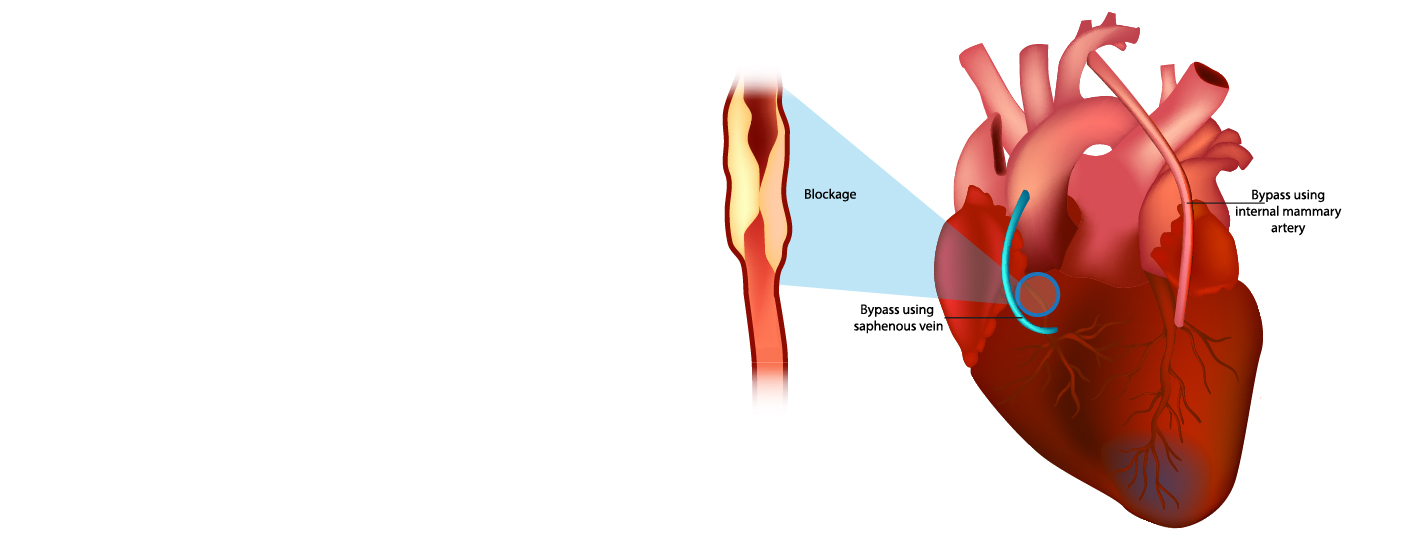A break in the electrical signals that control the heartbeat is commonly referred to as a heart block and also known as an atrioventricular block (AV block). Different levels of disturbance may result in various levels of seriousness. It is essential to understand heart block's causes, symptoms, diagnosis, and therapy to manage the condition effectively and avoid consequences.
Signs and Symptoms of Heart Block
Depending on the severity of the blockage and how it affects heart function, heart block symptoms can change. These are the typical signs:
- Fatigue and Weakness: Individuals with heart block may experience generalized fatigue and weakness due to inadequate blood flow to the organs and muscles.
- Dizziness or Syncope: Fainting spells or dizziness can occur, especially during physical activity or when standing up quickly, due to reduced blood flow to the brain.
- Shortness of Breath: Difficulty breathing, especially with exertion, may develop as the heart struggles to pump efficiently.
- Chest Pain or Discomfort: Some people may experience chest pain or discomfort, which can range from mild to severe, often resembling angina.
- Palpitations: Sensations of irregular or skipped heartbeats can occur as a result of the disrupted electrical signals in the heart.
- Bradycardia: A slow heart rate, typically below 60 beats per minute, is a common feature of heart block, especially in advanced cases.
- Heart Failure Symptoms: In severe cases, symptoms of heart failure such as swelling in the legs, ankles, or abdomen, and difficulty lying flat due to shortness of breath (orthopnea), may develop.
Causes of Heart Block
Heart block can have various causes, including:
- Degenerative Changes: Aging can lead to degenerative changes in the heart's electrical conduction system, predisposing individuals to heart block.
- Heart Disease: Conditions such as coronary artery disease, myocardial infarction (heart attack), and cardiomyopathy can damage the heart's electrical pathways.
- Medications: Certain medications, particularly those used to treat heart conditions or high blood pressure, can interfere with the heart's electrical conduction system.
- Inflammatory Conditions: Infections or inflammatory diseases affecting the heart, such as myocarditis or rheumatic fever, can disrupt normal electrical signalling.
- Congenital Factors: Some individuals are born with structural abnormalities in the heart's conduction system, increasing their risk of heart block.
How to Diagnose a Heart Block
Diagnosing heart block typically involves a combination of medical history, physical examination, and specialized tests, including:
- Electrocardiogram (ECG): This non-invasive test records the heart's electrical activity and can detect abnormalities indicative of heart block.
- Holter Monitoring: Continuous ECG monitoring over a 24- to 48-hour period can help capture intermittent or transient heart block episodes.
- Echocardiogram: This ultrasound imaging test provides detailed images of the heart's structure and function, helping to identify underlying heart conditions contributing to heart block.
- Exercise Stress Test: Assessing heart function during physical exertion can reveal abnormalities in heart rate and rhythm, aiding in the diagnosis of heart block.
- Electrophysiological Studies (EPS): Invasive procedures involving the insertion of catheters into the heart can map its electrical pathways and identify the location and severity of blockages.
The Treatment of Heart Block
The goals of heart block treatment are to reduce symptoms, avoid issues, and get the heart to its regular rhythm. The strategy is determined by the blockage's degree and underlying cause. Choices include:
- Medications: Drugs such as beta-blockers, calcium channel blockers, or antiarrhythmics may be prescribed to regulate heart rate and rhythm.
- Pacemaker Implantation: A pacemaker is a small device implanted under the skin, usually in the chest, that delivers electrical impulses to regulate the heartbeat. This is often the primary treatment for significant heart block.
- Cardiac Resynchronization Therapy (CRT): In cases of advanced heart failure with conduction delays, CRT devices may be implanted to improve synchronization between the heart's chambers and enhance pumping efficiency.
- Lifestyle Modifications: Adopting a heart-healthy lifestyle, including regular exercise, a balanced diet, smoking cessation, and managing underlying health conditions, can help manage heart block and reduce the risk of complications.
- Regular Follow-up: Monitoring heart function through routine check-ups and adjustments to treatment as needed are essential for managing heart block effectively and preventing progression or complications.
Conclusion
In conclusion, heart block is a disorder that causes problems with the electrical conduction system of the heart. It can cause a variety of symptoms, such as tiredness, lightheadedness, chest discomfort, and fainting. Many things, such as age-related changes, cardiac disease, drugs and genetic factors, can cause it. To restore normal heartbeat and function, medicines, pacemaker setup, or other therapies may be used in combination with other diagnostic procedures such as electrocardiography. A comprehensive strategy that is adapted to each patient’s needs is necessary for the management of heart block, with the goals of improving symptoms, problem prevention, and overall quality of life enhancement. Improving outcomes and lowering the chances of unfavourable events related to that illness requires early detection and care.
Frequently Asked Questions
Q1: What are the main symptoms of Heart block ?
A: Shortness of breath, palpitations, weariness, Dizziness, fainting, and chest discomfort are common symptoms. These can vary according to the extent of the blockage and how it affects cardiac function.
Q2: How is Heart block diagnosed ?
A: Electrocardiograms (ECGs), Holter Monitoring, Echocardiograms, exercise Stress Tests, and Electrophysiological Studies (EPS) are among the procedures used in the diagnosis process to assess heart rhythm and function.
Q3: What causes Heart block ?
A: The heart's electrical conduction system can be disrupted by genetic factors, Cardiac disease, ageing, drugs, and inflammatory diseases, which can result in irregular heart rhythms.
Q4: What are the treatment options for Heart block ?
A: To control symptoms and avoid consequences, treatment options may include Cardiac Resynchronization Therapy (CRT), Pacemaker implantation, beta-blockers, antiarrhythmics, lifestyle changes, and routine follow-up appointments.



